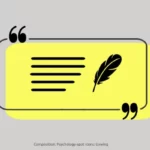
Save, accumulate and collect are actions that most of us know perfectly. We pile things up for different reasons. Because they have a sentimental value. Because we think we might need them at some point in the distant future. Because we spent money on them and we think it would be a sin to throw them away, even though we have used them for years and are so worn out that they practically disintegrate…
If we succumb to that mentality, it is likely that we still have that horrible souvenir that we bought years ago while traveling, that book that has been on the shelf for decades without being open or those shoes that we keep for a “special occasion” that never comes. However, surrounding ourselves with more and more things could affect our well-being and our reasoning.
Disorder overloads our brain and stresses us
Chaos and disorder caused by the excess of possessions ends up taking its toll – whether we want it or not – because we are sensitive to our surroundings. Shapes, colors, placing, smells and even temperature influence our mood and can take us make better or worse decisions.
Researchers at the University of California discovered that an excess of objects at home causes overstimulation and overload at brain level. The result? A subtle but constant feeling of stress and higher levels of cortisol that increase throughout the day.
In fact, researchers from the Institute of Neurosciences at Princeton University confirmed that a visual field with multiple stimuli limits our ability to process information and increases the chances of distraction. They explain: “When there are multiple stimuli in the visual field at the same time, they compete for neural representation by mutually suppressing the activity they generate throughout the visual cortex, so as to limit the processing capacity of the visual system.”
In other words, when our environment is messy, chaos limits our brain’s ability to process information since different active neural networks are maintained. It is as if a child were calling us and pulling simultaneously our dress. We can concentrate. Yes. But our resources will be limited because our attention is distributed. As a result of that distraction, we will not be able to process the information as well as we would in a more orderly, clean and clear environment.
Disorder takes us make worse decisions
If we are not able to process the information thoroughly, the chances of us making worse decisions increase. Researchers at the University of British Columbia found that when we are in messy rooms our degree of self-control decreases and we tend to make more impulsive decisions than we can later regret. Everything seems to indicate that chaos generates a state of internal activation that drives us to act, without carefully assessing the consequences of that decision.
In fact, neuroscientists at McMaster University corroborated that when we are in disorderly and motley environments our brain works differently: we not only make more mistakes but also trust ourselves more than we should. That is, the disorder not only prevents us from thinking clearly but also leads us to make errors of judgment and, even worse, makes us believe that we are making the right decision, without a shadow of a doubt.
In this way, disorder and the excess of possessions would be a kind of time bomb. They join us in a vicious circle marked by stress, bad decisions and frustration, also taking us away the necessary capacity to objectively assess our behavior.
Less things = More order, more simplicity, more happiness
Our cognitive and emotional processes are extremely susceptible to the signals that come from outside. That means that, although we do not need to get to the extreme of minimalism that the Japanese writer Fumio Sasaki preaches, we must be aware that having fewer things eliminates the disorder, helps us create a visually clearer environment that promotes a greater sense of wellbeing and helps us clarify our mind and make better decisions.
The secret is simple: practice detachment following Marie Kondo’s method. That means that we must discard everything that is not useful, we do not need, does not make us happy or does not have a special emotional meaning because these things are only occupying physical and emotional space, creating chaos and fueling insecurity.
Instead, we should leave only those functional things and/or that make us feel good when we see them. Basically, if an object does not have a special meaning or is not functional, it does not have to have a place in our house.
To begin, we must visualize what kind of home we want and what we really need in our lives. Is what we “need” really functional or does it give us happiness, peace and/or allow us to grow? These are questions that, sooner rather than later, we should ask ourselves because they will help us create a serene space that fosters inner peace and helps us make better decisions. As Pythagoras said: “With order and time we find the secret to do everything, and do it well.”
Sources:
Boyoun, G. et. Al. (2014) Environmental Disorder Leads to Self-Regulatory Failure. Journal of Consumer Research; 40(6): 1203-1218.
McMains, S. & Kastner, S. (2011) Interactions of top-down and bottom-up mechanisms in human visual cortex. J Neurosci; 31(2): 587-597.
Saxbe, D. & Repetti, R. L. (2010) For better or worse? Coregulation of couples’ cortisol levels and mood states. J Pers Soc Psychol; 98(1): 92-103.
Saxbe, D. & Repetti, R. L. (2010) No Place Like Home: Home Tours Correlate With Daily Patterns of Mood and Cortisol. Personality & Social Psychology Bulletin; 36(1): 71-81.
Baldassi, S. et. Al. (2006) Visual Clutter Causes High-Magnitude Errors. PLoS Biol; 4(3): e56.



